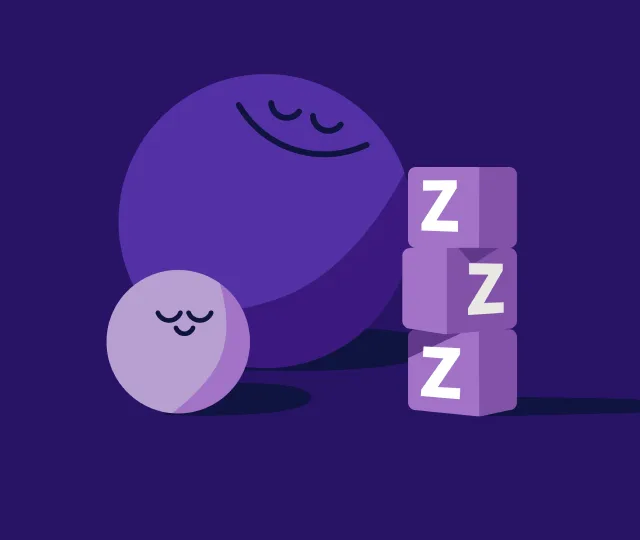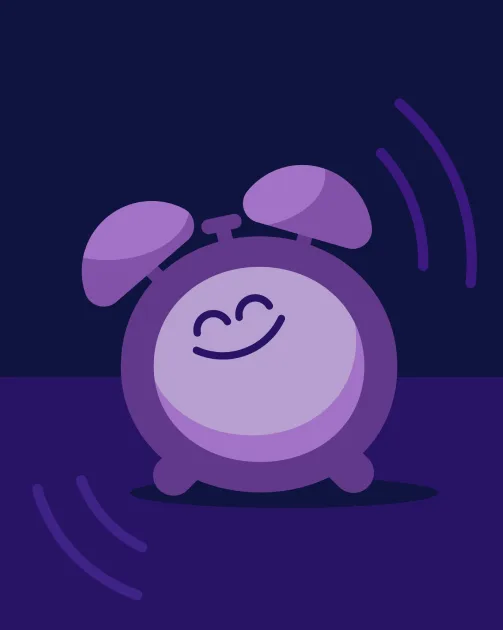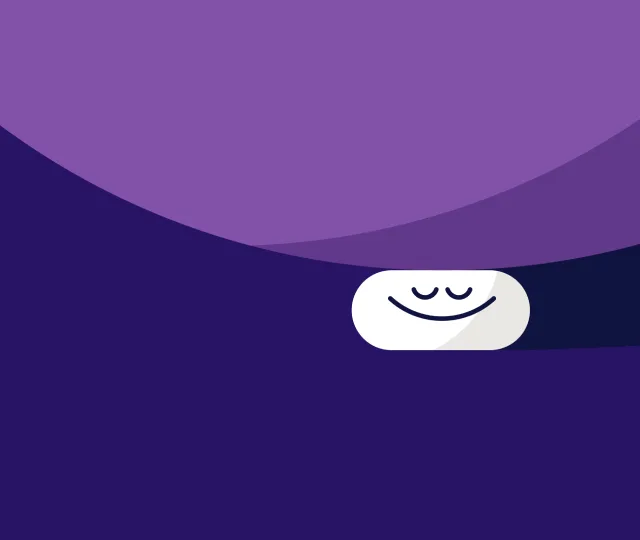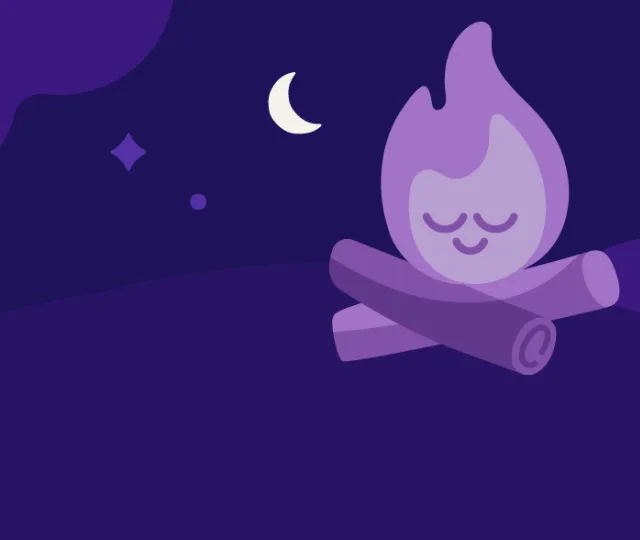How to reset your sleep schedule
By Your Headspace Mindfulness & Meditation Experts
Oct 11, 2023
In an ideal world, what time would you go to bed and what time would you wake up? For some people, their existing sleep schedule might already sync with their body clock. For others, it might not match up: the CDC found that over 70% of American adults experience sleep issues at least once a month, while 11% experience them every night.
Maybe you’re a shift worker, switching between working nights and days, or a parent dealing with little ones interrupting your sleep. Or maybe you’re someone who has gotten into the habit of using your phone before bed, or simply have trouble falling back asleep after waking — watching videos or going down social media rabbit holes.
Whatever the reason, if a consistent bedtime routine has slipped away, you can learn, with a little thought and planning, how to reset your sleep schedule.
Try a 1-minute meditation for better sleep

Guided Meditation for Sleep
1 min
How your body clock works
Your body clock regulates your circadian rhythm, the internal process that governs not only your sleep-wake cycle, but also your physical, mental, and behavioral changes within a 24-hour period.
Going to sleep at night and waking up in the morning might be the most well-known circadian rhythm. It works like this: your optic nerves send information about incoming light (or the lack of it) to the part of your brain that’s commonly called your biological clock. During the day, the light your eyes see or perceive triggers a signal that generates alertness; at night, melatonin is released so that you feel drowsy.
That’s why, centuries ago, people naturally went to bed at sundown and got up with the sunrise. Early to bed, early to rise — a circadian rhythm in sync with natural daylight.
Cut to modern-day busyness, technology, and distractions — and suddenly, natural sleep cycles aren’t so simple. Yes, you could still go to bed when the sun goes down, but artificial light from a lamp or light from a phone could mess with your circadian rhythm.
A small study set out to see whether humans could get back to daylight-driven sleep patterns. Eight participants were sent camping to the Rocky Mountains for one week — no flashlights, cellphones, or sources of power. The results showed that simply by changing their exposure to daylight, the participants could reset their sleep schedules.
Because they were exposed to more natural light during the day and less electric light at night, their circadian rhythms shifted by 2 hours. Not only did they go to bed and wake up earlier, but they also felt less tired upon waking, even the self-confessed night owls. This makes it clear: controlling your exposure to light is an important part of how to reset your sleep cycle.
Fixes for setting a consistent sleep schedule
You may have heard the term sleep hygiene, which refers to creating the ideal conditions for a healthy sleep cycle — and the opportunity to wake up well-rested.
It doesn’t just apply to brushing your teeth (however, that certainly doesn’t hurt!). Sleep hygiene relates to the routine that you have during the day as well as pre-bedtime, like the temperature of your bedroom or the time of day you consume caffeine. An optimized environment and well-thought-out routine can play a great role in your ability to reset your body clock. Ideal sleep hygiene can set the stage for being more focused during the day and more relaxed at night. Signs of poor sleep hygiene include fatigue and brain fog, two conditions that can deter you from resetting your sleep schedule.
When your daytime routine is off, you might feel like you’re yearning for a midday power nap to make it through the day — this could be a sign of poor sleep hygiene. In fact, a study found that napping in a dark room during the morning hours (which they defined as before 2 p.m.) disrupts circadian rhythms and sleep cycles. To keep your body clock regulating properly, reach for a quick workout the next time you’re hitting a midday wall. Opting for a workout can energize you by bringing you into the present moment, anything from low-impact stretching to high-intensity cardio can give you a boost of energy.
Another daytime activity that can greatly affect your sleep cycle is your link with food. If you can, avoid stimulants like caffeine, sugar, and alcohol a few hours before bedtime. A nightcap at 8 p.m. with a 9:30 p.m. bedtime goal will likely disrupt your sleep cycle. Even if you’re able to fall asleep when you want, there is a greater chance your sleep quality suffers.
If that 4 p.m. coffee habit seems impossible to kick, following mindful eating might help balance your relationship and patterns around food. Mindful eating can help improve your circadian rhythm by bringing intention and awareness behind each meal and ingredient you consume. It’s not a diet, cleanse, or elimination, but a practice to turn off autopilot while you eat so that you can truly enjoy each bite. When resetting your body clock, think about the times of day you’re eating and get on a schedule that is sustainable. Your circadian rhythm feeds off of your energy intake, so energize with intention.
One of the key pillars of resetting your sleep schedule is by waking up at the same time each day. Your body clock likes to run, well, like clockwork. So that means no lie-ins on weekends and no snooze button during the week. But remember, nothing happens overnight. Be patient with yourself and know that the adjustments get easier when your circadian rhythm balances. You can adjust your bedtime by 15-minute increments every 2-3 days, if you normally crash around 1 a.m., try aiming for 12:45 a.m., then 12:30 a.m., and so on.
When trying to set a consistent bedtime, be mindful about the light you’re exposed to before bed — natural or artificial. If you must use your phone, switch to night mode at least one hour before bed. In the morning, allow the sun/natural light to flood into the room.
While you’re at it, don’t forget about taking time for yourself at the end of the day. Just a few moments of alone time without distractions or notifications can do wonders for your mindset and ability to tune out.
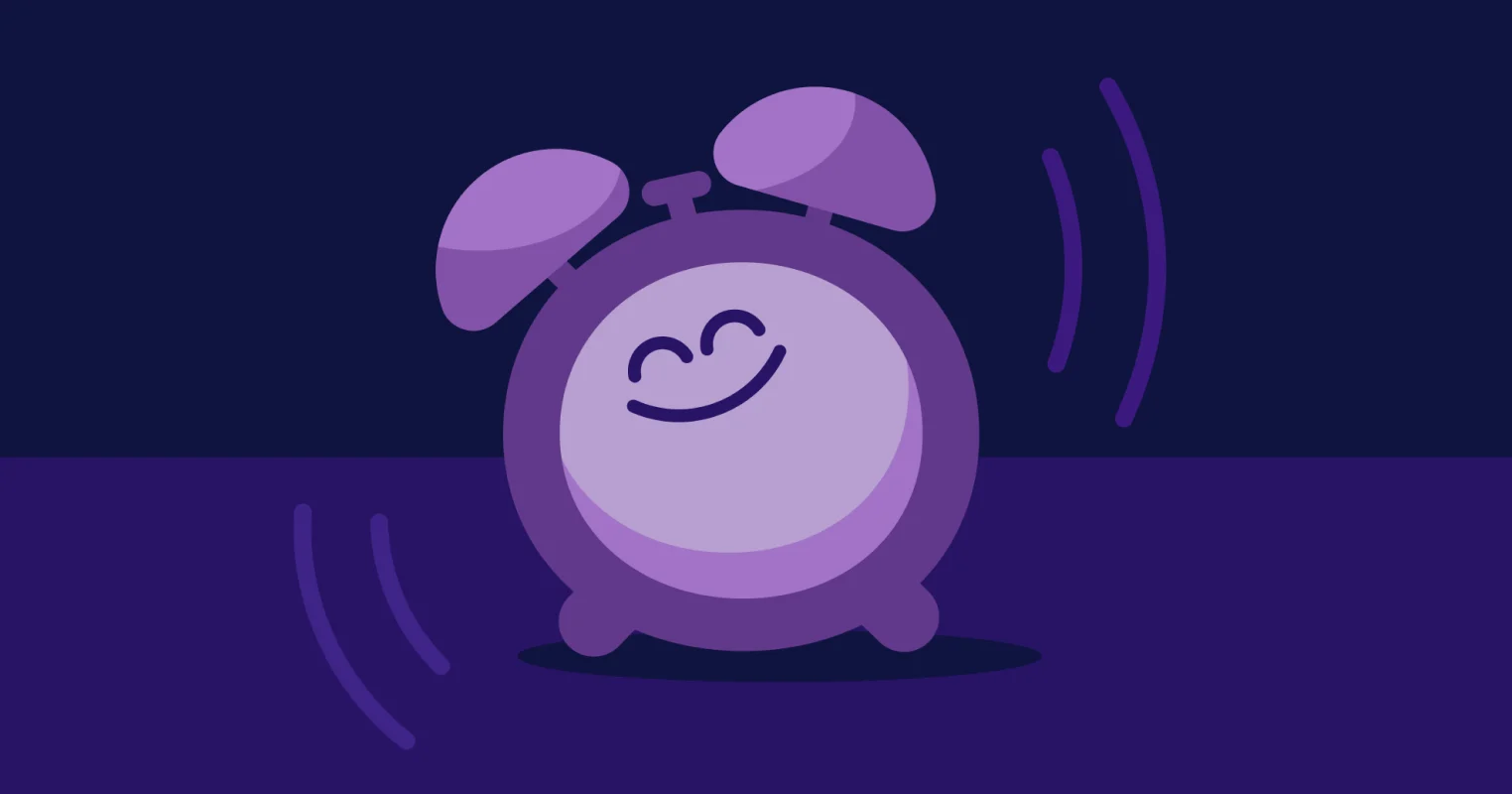
Meditation to reset your body clock
Routines are deeply embedded in us, which is why the circadian rhythm is such a powerful tool for total body health. That said, stressors can throw off our routines, even when we have the best intentions to follow or adjust them. We can plan to go to bed 30 minutes earlier, but sometimes the mind has other plans.
Meditation can be a tool that supports the process of resetting your sleep cycle by helping to calm an overactive mind. By practicing easy meditation techniques, we might become better equipped to relax the mind more regularly and, in turn, relax the body so we can drift off to sleep on a healthy schedule. As we continue the practice of mindfulness and taking quality time for ourselves, our circadian rhythm will follow suit.
Try turning to a guided meditation or breathing exercise. Because meditation is focused on the breath, it’s an option no matter where you are or how much time you have — whether that’s lying in bed or in between meetings. After just two minutes of a breathing exercise, it’s possible to transform your mindset from anxious to balanced. At night, an audio guide like sleepcasts* will take you on a dreamy trip — with visualizations that can drop you into a relaxed state in less than 45 minutes.
The benefits of resetting your sleep schedule stretch far and wide, from how productive you are in the daytime to how restful your sleeps are. No matter what your previous routines (or lack thereof) looked like, resetting your body clock is possible for anyone that is willing.
Be patient with yourself and know that the dread associated with the alarm clock in the mornings will eventually pass — so much so, it’s possible that you may not even need an alarm clock down once your body clock is in sync.
*Available only to Headspace Plus users


Sleep made simple
- Find your perfect bedtime routine with hours of relaxing music, sounds, and stories to choose from
- Get more restful sleep with our Sleep Health course: exercises developed with leading sleep scientists
- Feel your best from morning to bedtime with access to hundreds of stress-relieving meditations
Annual - billed at $69.99 USD/yr
14 days free
$5.83 USD/month
Monthly
7 days free
$12.99 USD/month


Stay in the loop
Be the first to get updates on our latest content, special offers, and new features.
By signing up, you’re agreeing to receive marketing emails from Headspace. You can unsubscribe at any time. For more details, check out our Privacy Policy.
- © 2025 Headspace Inc.
- Terms & conditions
- Privacy policy
- Consumer Health Data
- Your privacy choices
- CA Privacy Notice
